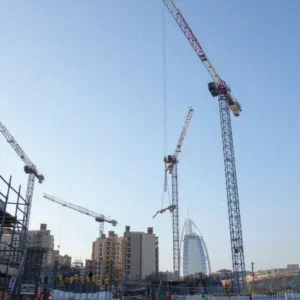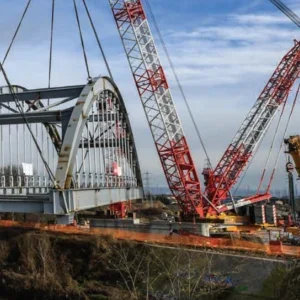According to Joao Batista Pinherio Domenici, executive vice president of Brazilian haulage association Sindipesa, the outlook for Brazil is good. “In Brazil, we have passed the last ten years with low rates of economic growth. But, in the last two years, the country experienced growth close to 6%, carried by high worldwide demand for commodities and the urgent need for big investments in infrastructure recovery in the energy and petroleum industry. So, a strong demand for heavy haulage transport is expected for the next five years.”
One prominent special transport company is Locar, which started in 1988 with 70% heavy haulage business and 30% crane business, says Julico Simões, commercial director of its tower crane division, and son of founder Julio Eduardo Simões.
But ten years later, the company had reversed that trend, so that most of its work was coming from crane rental. “There are now more competitors, and the investment is less than the investment required for cranes,” he explains. “Compared to ten years ago, our transport fleet is bigger, but our crane fleet is much bigger.” The company has more than 200 axle lines of modular trailers, and Simões says that he is considering buying SPMTs.
According to Domenici at Sindipesa, modular trailers are very common: more than 20 companies have them. And most haulage companies do crane work as well.
He says that the Brazilian industry’s biggest problems are deficiencies infrastructure because years of low investments in maintenance, and the tax charged on special transport loads, mainly on toll roads.”
He says that there is little cross-border transport with Brazil’s continental neighbours. “Most of the imported or exported heavy cargo in Brazil is transported by barges from Santos Port, close to São Paulo where most of the industries are located. Nowadays most of the production of companies like Siemens, ABB and Tecsis (Eolic Energy) is to be exported, so there is intense use of barges, experiencing unfortunately big problems in Santos Port.”






